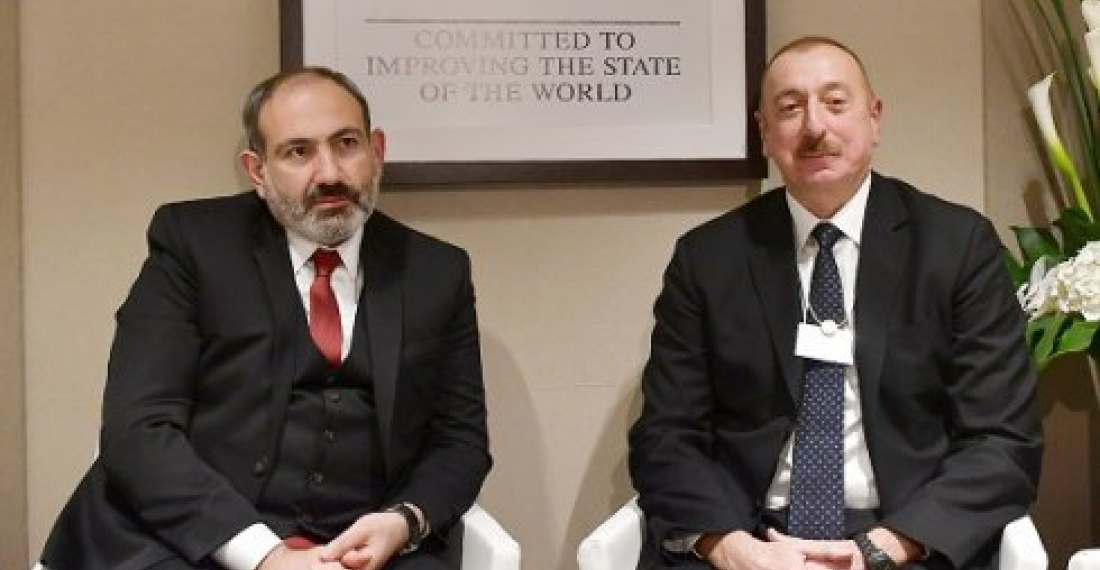In this op-ed for commonspace.eu Richard Giragosian says that "despite the clearly more positive environment of the peace talks, there is a need to "mind the gap" between expectations and reality over the course of the Karabakh peace process. Such scepticism is not meant to diminish the importance of a welcome return to diplomacy over force of arms, however".
With the successful "Velvet Revolution" in Armenia last year, there were little real expectations of any progress in the peace process over the Nagorno Karabakh (Artsakh) conflict. Over time, the pace of diplomacy over this unresolved conflict reflected a general passive perception that with little political will, there was little that the international mediators could do to forge a negotiated solution. And this perception was largely accurate, and was even bolstered by he cynics' doubt whether Russia will ever go along with anything that offered progress.
But in recent months, it seems that the old calculus has been replaced with a refreshing degree of optimism, as the peace process has notably accelerated. In fact, such a return to real diplomacy is counterintuitive, as change in the Armenian government was initially thought to trigger a retreat to a slower and more cautious policy, due to the priority of domestic reform and stemming from the weakness and inexperience of the new Armenian leadership on the Karabakh issue.
Yet with no experience in dealing with the Azerbaijanis on any official level, both the Armenian premier and his foreign minister have committed to a more intense and rapid course of meetings and talks with Azerbaijani leaders. While the Armenian side deserves credit for taking every opportunity, often on the sidelines of multilateral meetings, to engage the Azerbaijanis, the shift in Baku's diplomacy is an equally important factor.
More specifically, the Azerbaijani diplomatic strategy, which was previously seen as neither diplomatic nor very strategic, seems to have been moderated and modified. This move away from years of maintaining a more maximalist policy includes a new approach of offering an atmosphere of concession or compromise within the negotiations. This is most clearly seen in Baku's agreement to restore back channel communications through a telephone "hot line" between the Azerbaijani and Armenian sides. This move is also important as a reversal of a long standing refusal, and as it follows renewed pledges to strengthen ceasefire monitoring and resume confidence-building measures.
"Mind the Gap"
Despite the clearly more positive environment of the peace talks, there is a need to "mind the gap" between expectations and reality over the course of the Karabakh peace process. Such scepticism is not meant to diminish the importance of a welcome return to diplomacy over force of arms, however. Rather, a more sober assessment is aimed more at highlighting what needs to be done in order to safeguard such optimism. And while the increased pace of meetings and talks offer a serious improvement over the stalemated talks in recent years, there are three significant areas that need to be addressed.
First, despite good intentions, informal meetings and encounters between leaders during multilateral events do not constitute the formal diplomacy of summitry. Personal chemistry and conversations are important, but only to bolster and not to replace ministerial or leaders' meetings, with official agendas and opportunities for agreements. Given the complexity of the Karabakh conflict, there needs to be a written record, with formal mediation in order to facilitate real progress. Otherwise, the absence of such official engagement prevents any chance of reaching binding agreements and may distract from real diplomatic negotiations.
A second important element is the necessity for public education and awareness. Obviously, given the constraints of secrecy and confidentiality of the peace talks, there has been little investment in revealing the state or the status of the negotiations. But this pronounced lack of information has tended to only promote misinformation, or worse, to invite disinformation, thereby undermining the political will necessary for compromise or concession. This has also prevented the emergence of a broader constituency for peace, and limited the ability of leaders to shape the narrative of the conflict within the political discourse in each society. Such a need can also be addressed by leveraging civil society groups, opinion-makers/shapers and other "agents of change," as well as by expanding people-to-people contacts and exchanges.
Finally, the third requirement is to widen the approach, by expanding the focus of the talks beyond the "status" of Karabakh to include shared threats and mutual concerns, and to adopt a more forward-looking stance. The former approach, which can encompass shared seismic threats and the scourge of the summer wildfires in the region, as well as the more abstract but looming consideration of nuclear security, offer a more neutral agenda for collaboration, if not cooperation. And the latter need to adopt a forward-looking stance stems from the need to plan and prepare for "the day after" any possible peace agreement, with an assessment of what is needed to hold the peace and prevent or preempt any developments that destabilise the fragile period immediate following a negotiated resolution.
Therefore, it is far too premature to either hail a new period of meaningful and lasting engagement over Nagorno Karabakh or to dismiss preliminary signs of optimism. But most importantly, there is a need to "mind the gap" between expectations and reality in order to prevent any dangerous disappointment with diplomacy or frustration with a peace process that is inherently gradual and slow.
Source: This op-ed was prepared for commonspace.eu by Richard Giragosian, director of the Regional Studies Centre (RSC), an independent "think tank" in Yerevan, Armenia. (director@regional-studies.org) .
photo: Prime minister Nikol Pashinyan of Armenia and president Ilham Aliyev of Azerbaijan at their meeting in Davos in January 2019 (archive picture)







